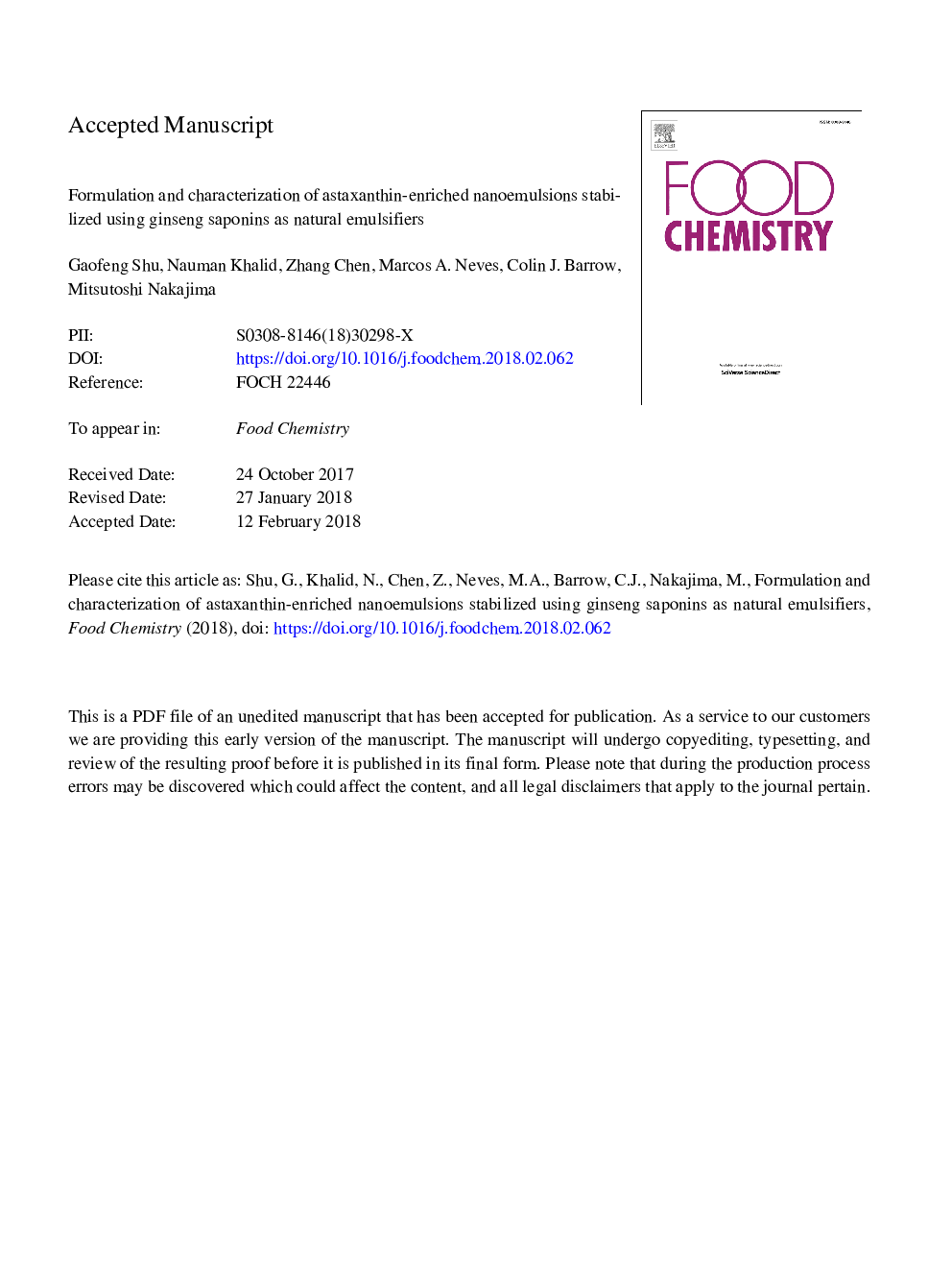| Article ID | Journal | Published Year | Pages | File Type |
|---|---|---|---|---|
| 7585379 | Food Chemistry | 2018 | 37 Pages |
Abstract
In this study ginseng saponins (GS) were used as natural emulsifiers to formulate and stabilize O/W nanoemulsions loaded with astaxanthin (AST). GS were found to be highly effective at reducing the interfacial tension at the soybean oil-water interfaces, and were capable of producing nano-scaled droplets (d4,3â¯ââ¯125â¯nm) using a high-pressure homogenizer. The droplet size of the nanoemulsions decreased with increasing emulsifier concentration and homogenization pressure. The nanoemulsions were stable without droplet coalescence against thermal treatment (30-90â¯Â°C, 30â¯min), and over a narrow range of pH values (7-9). GS-coated droplets were unstable in acidic conditions (pH 3-6) and in the presence of salt (>25â¯mM NaCl). The formulated nanoemulsions showed slight change in d4,3 during 15â¯days of storage at 5, 25 and 40â¯Â°C. However, the chemical stability strongly depended on the storage temperature, with the lowest level of AST retained in nanoemulsions stored at higher temperature.
Related Topics
Physical Sciences and Engineering
Chemistry
Analytical Chemistry
Authors
Gaofeng Shu, Nauman Khalid, Zhang Chen, Marcos A. Neves, Colin J. Barrow, Mitsutoshi Nakajima,
